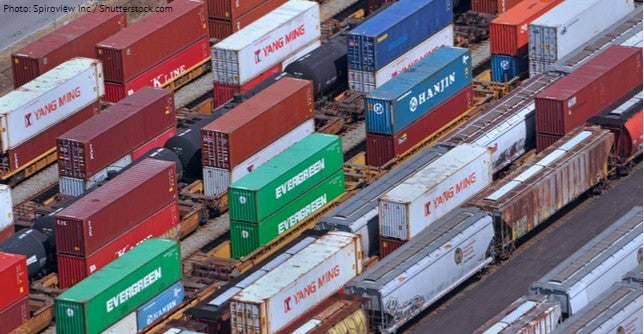GAO says a study of freight trains as long as three miles should include a strategy for both the FRA and railroads to ease impacts of delays at crossings.
While the railroad industry’s operation of increasingly longer freight trains promises economic benefits, state and local governments are especially concerned about the impact of prolonged delays to traffic at crossings to emergency responders.
The Federal Railroad Administration (FRA) is studying the safety risks and strategies of operating longer trains, including their handling and braking capabilities under different conditions. The agency also is studying which parts of the country are experiencing frequently blocked rail crossings.
However, the Government Accountability Office (GAO) in a report on Monday said FRA currently has no “documented strategy” for sharing the results of its research with stakeholders.
“Developing and implementing a strategy for sharing FRA’s research results and identifying any potential impacts of longer freight trains on highway-railroad crossings would enable FRA and stakeholders to better determine what, if any, actions are needed to ensure the safe operation of longer freight trains,” the GAO said.
The average freight train length in 2017 stood at 1.2 to 1.4 miles long, with one Class I railroad telling the GAO that it operates a three-mile-long train twice weekly. State and local government officials noted to GAO that long, slow-moving or even stopped trains at road crossings can prevent emergency responders from answering medical, accident and fire calls.
The town of Mount Victory, Ohio, for example, told the GAO that as many as 22 freight trains pass through the town daily, including a 16,000-foot-long train that’s nearly three miles long. This train blocks four to five grade crossings concurrently, cutting off a large section of the town.
GAO recommended in its report for FRA to develop and implement a strategy for sharing the results of its study on longer trains and work with the railroads to work with state and local governments to identify and reduce the motor vehicle impacts of longer freight trains at highway-railroad crossings. The agency said FRA agreed with its recommendations.











